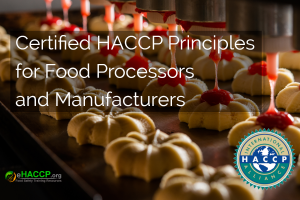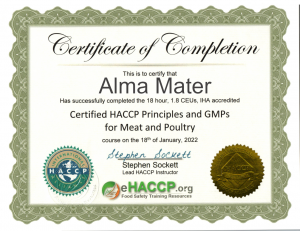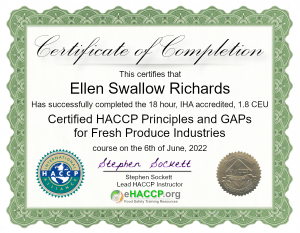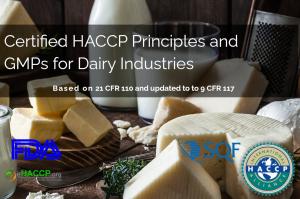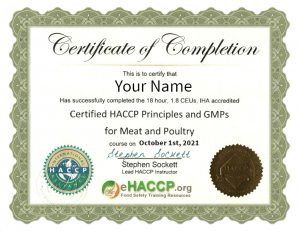eHACCP.org Explains Accredited HACCP Training Requirements
HACCP is a systematic approach to food safety that helps identify and control potential hazards at various stages of food production, processing, and handling.
Accreditation of HACCP training programs ensures that they meet certain standards and are taught by qualified instructors. The specific requirements for accredited HACCP training may vary by country or region, but they often include the following elements:
- Curriculum: Accredited HACCP training programs should cover the principles of HACCP, including hazard identification, critical control points (CCPs), monitoring, corrective actions, verification, and documentation. The curriculum should align with internationally recognized HACCP guidelines.
Length: Accredited HACCP training, according to the FAO’s Codex Alimentarius’ guidelines and IHA requirements the HACCP training be a minimum of 16 hours (2-day workshop) in length.
- Qualified Instructors: Instructors delivering accredited HACCP training should have the necessary expertise and experience in food safety and HACCP principles.
- Recognition by Authorities: Training programs may need to be recognized or approved by relevant government agencies or food safety authorities in a specific jurisdiction. In the United States, for example, the U.S. Food and Drug Administration (FDA) recognizes certain organizations that offer accredited HACCP training.
- Certification: Successful completion of accredited HACCP training often leads to the issuance of a certification or credential. This certification can be valuable for individuals working in the food industry, as it demonstrates their knowledge and competence in HACCP principles.
Continuing Education: Accredited HACCP training programs may also require participants to undergo periodic retraining or continuing education to stay up to date with industry best practices and regulatory changes.
- Third-Party Accreditation Bodies: Some countries or regions have established third-party accreditation bodies responsible for assessing and accrediting HACCP training providers. These bodies evaluate the quality and content of training programs to ensure they meet established standards.
It's important to check with local food safety authorities or industry associations to identify accredited HACCP training programs in your area. Additionally, the specific requirements for accreditation may vary depending on the type of food production or processing facility and the level of training needed (e.g., basic, intermediate, or advanced HACCP training). EHACCP.org’s HACCP training courses meet each one of the requirements.
Stephen Sockett
eHACCP.org
+1 866-488-1410
email us here
Visit us on social media:
Facebook
Twitter
LinkedIn
YouTube
Other
Video overview of eHACCP.org. Online HACCP training and certification for food companies; producers, processors / manufacturers, meat and poultry, seafood, etc.
Legal Disclaimer:
EIN Presswire provides this news content "as is" without warranty of any kind. We do not accept any responsibility or liability for the accuracy, content, images, videos, licenses, completeness, legality, or reliability of the information contained in this article. If you have any complaints or copyright issues related to this article, kindly contact the author above.

